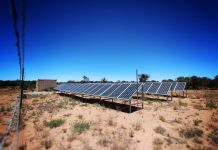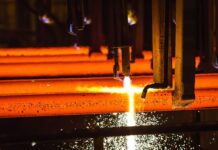
The Australian Renewable Energy Agency (ARENA) has intensified its efforts to decarbonise the aviation sector, announcing multiple initiatives focused on Sustainable Aviation Fuel (SAF).
This follows the 2023 release of the Aviation Green Paper, which highlighted the aviation industry’s significant carbon emissions challenge.
Accounting for 5 per cent of Australia’s total emissions before the COVID-19 pandemic, the aviation sector’s emissions are re-emerging as flight activity normalises, the agency said in a media release.
A CSIRO report revealed that domestic aviation emissions tripled between 1990 and 2019, with projections indicating a 75 per cent rise in jet fuel demand by 2050.
To address these issues, ARENA launched its SAF Funding Initiative, which allocated $30 million to support SAF production, aiming to reduce emissions and establish a domestic industry.
SAF is a “drop-in fuel” that blends with conventional jet fuel, requiring no aircraft modifications.
While current SAF production relies on feedstocks like vegetable oil and waste fats, emerging technologies are exploring alternative sources, including agricultural residues and household waste.
ARENA recently announced its first funded project under the initiative, awarding $9 million to Jet Zero Australia for a feasibility study on a commercial-scale alcohol-to-jet low-carbon fuel production facility in Townsville.
Dubbed Project Ulysses, it aims to displace 225,000 metric tons of CO2 annually upon deployment.
Two additional projects received funding: Ampol and GrainCorp were granted $8 million and $6.1 million, respectively, for studies on renewable aviation fuels.
Ampol and GrainCorp have also signed a Memorandum of Understanding to advance an integrated renewable fuels industry in Australia.
ARENA CEO Darren Miller emphasised the importance of these efforts, stating, “With Australians being among the most prolific flyers in the world, decarbonising this high emissions industry will be vital for us to achieve our net zero targets.”
ARENA said plans to leverage its $1.7 billion Future Made in Australia innovation fund to further advance SAF technologies and reduce aviation emissions.



















